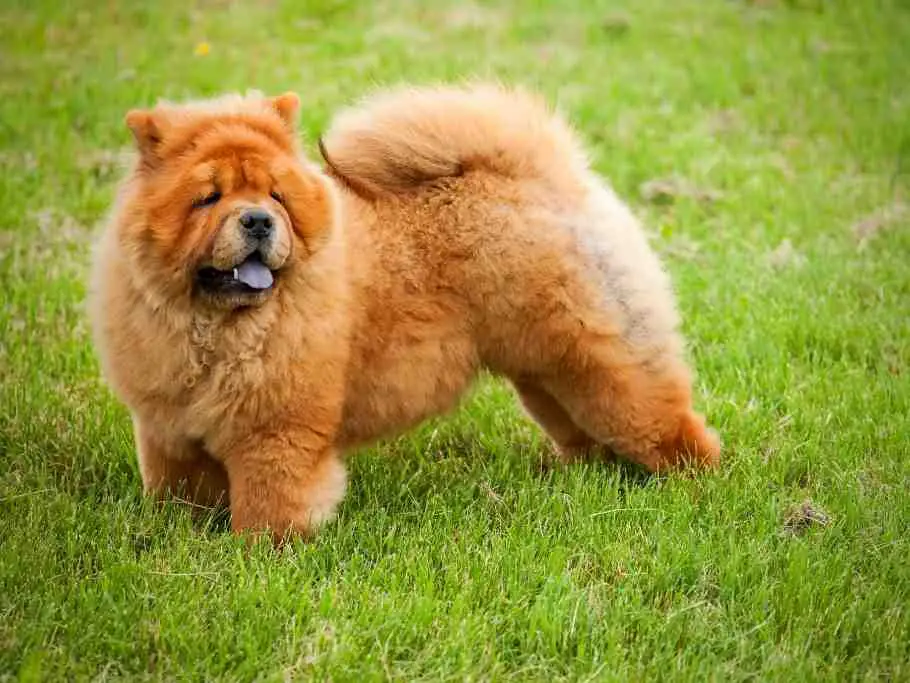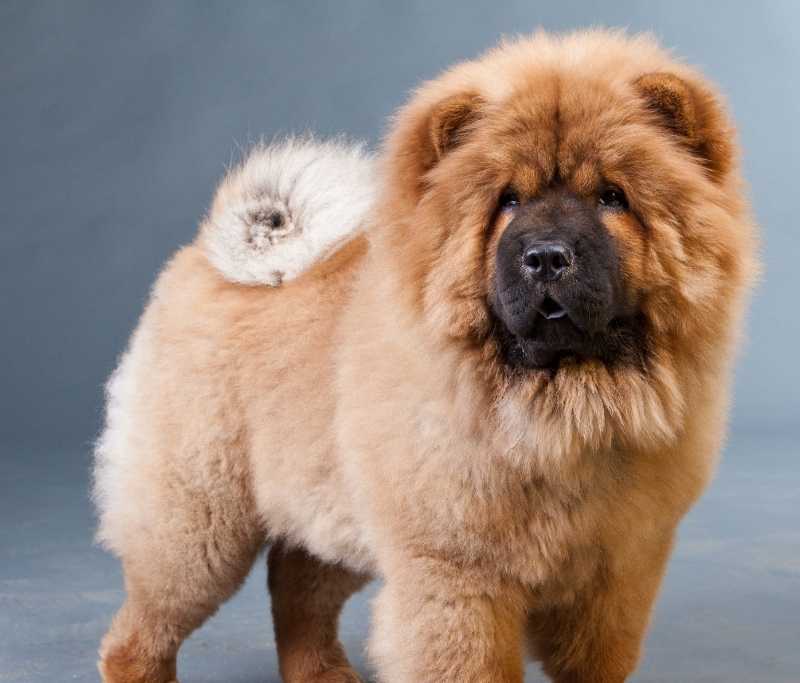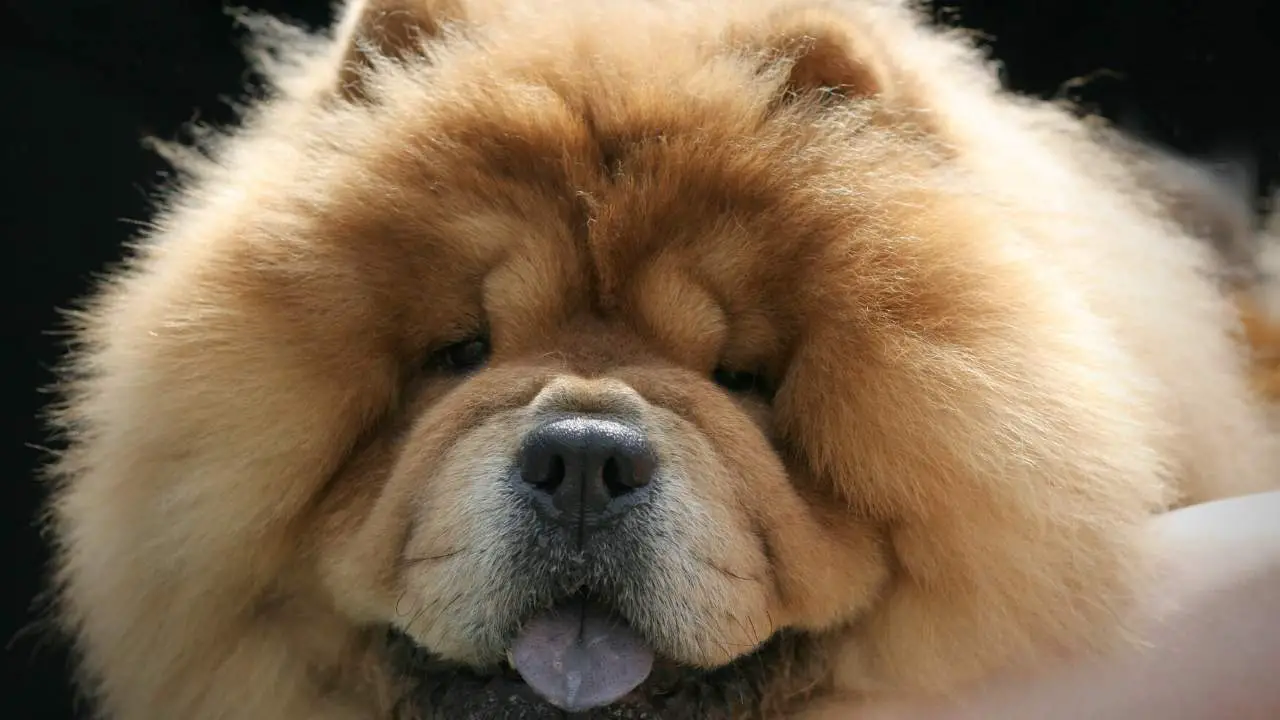Like us, dogs tend to be prone to various allergies. But unlike us, dogs cannot necessarily express their discomfort as clearly. Seeing your Chow Chow experience discomfort but not knowing what is happening can be a frustrating and distressing experience.
Luckily, I have gathered ample information to make such situations easier for you. Keep reading to discover which allergies Chow Chows are prone to and what you can do to help your Chow Chow.
Table of Contents
What Are Chow Chows Allergic To? What Are The Common Allergy-Causing Substances (Allergens) In Chow Chow?
Chow Chows are exposed to various allergies, some inherited and others unique to some dogs. These allergens include plants, proteins, animals, insects, and other allergens include insect saliva, pollens, mites, and some prescribed or unprescribed medication.
What Are The Signs & Symptoms Of Common Allergies In Chow Chow?
Dogs can experience mild or severe allergic reactions. Differentiating between your dog being ill or having a mild allergic reaction to something can be challenging, even for experienced dog owners. However, some signs and symptoms are dead giveaways that your Chow Chow is experiencing an allergic reaction.
Some dead giveaways of an allergic reaction include diarrhea, vomiting, difficulty breathing, discolored nasal discharge, runny eyes, dry and irritated skin, and excessive scratching or licking of the skin.
If your Chow Chow experiences breathing problems, it is a sign of a severe allergic reaction. In this situation, you should get them some help as soon as possible.
Are Chow Chows Hypoallergenic?
No, Chow Chows are not hypoallergenic. Chow Chows have thick, medium-length, and double-coated fur. They shed their fur throughout the year, increasing significantly during spring and fall when they essentially replace their fur.
Since Chow Chows never stop shedding, they can cause severe allergies to people who are allergic to dogs. The Chow Chow’s excessive shedding results from their ability to adapt to various environments.
You can reduce your Chow Chow’s shedding by brushing their fur daily. This can be pretty challenging for many people, so you should aim to brush your Chow Chow’s fur as often as possible. When brushing your Chow Chow’s fur, you should ensure that you do so outside to avoid getting fur all over the house.

What Are The Different Types Of Allergy?
Your Chow Chow can be exposed to several types of allergies. These allergies include insect bite allergies. If an insect bites your Chow Chow, it will experience a hyper-inflammatory response. Insects such as fleas, spiders, and ticks can cause this allergic response.
A Chow Chow bitten by a flea will experience flea allergy dermatitis. Flea allergy dermatitis causes the Chow Chow to lick and scratch themselves, removing hair in the affected area.
Some dogs experience food allergies, a common allergy in many dogs. The type of food that Chow Chows are allergic to may differ because although they may be the same breed, dogs are still unique and have unique needs. However, most food allergies result from the protein in the specific food item, such as chicken, dairy products, soy, and beef.
Unlike other allergies, food allergies can develop later in life. Your Chow Chow, who loved a specific beef product, may suddenly develop an intolerance for it. To treat a food allergy, you first must identify the allergens. Hence, it would help if you took note of your Chow Chow’s reactions to their meals. Your veterinarian will guide you on further steps to be taken.
Another type of allergy is contact allergy. This is caused when dogs come into direct contact with allergens. Fortunately, this form of allergy is not very common in dogs. If your Chow Chow comes into contact with an allergen, they will experience irritation and inflammation in the affected area.
Removing the specific substance is the first step when treating contact allergy. Afterward, you will have to treat the affected area on your Chow Chow.
Common Chow Chow Diseases

Hip Dysplasia
Hip Dysplasia is a common disease in many dog breeds, including the Chow Chow. A hip joint deformation causes it, resulting in the hip loosening up, causing pain and impaired mobility.
As your Chow Chow gets older, their hip is worn down, resulting in arthritis and restricted mobility. It has been proven that hip dysplasia is an inherited condition in dogs.
Cataracts
Cataracts are a progressive eye condition that develops in dogs as they age. Their eyes become cloudy, which prevents light from penetrating them. Thus, limiting their vision. Some dogs affected by cataracts can see, although their vision is limited, while others lose their eyesight completely.
The most apparent symptom of cataracts is cloudiness, while other symptoms include clumsiness, eye rubbing, and difficulty seeing. Cataracts are hereditary, so you should find out whether your Chow Chow’s parents were affected by this condition.
Patella Luxation
This condition causes the kneecap to pop out and become dislocated. Chows affected by this condition experience frequent kneecap dislocations. They will often show the following symptoms:
- Hopping on one leg.
- Stretching their leg to place their kneecap in its correct location, reluctance to move.
- Whining.
The treatment for Patella Luxation depends on the severity of your Chow Chow’s condition. Veterinarians would recommend surgery to grade three or four.
Do Chow Chows Get Allergies?
Yes, Chow Chows get allergies. Chow Chows are exposed to many forms of allergies, one of them being flea and insect allergies. This type of allergy is triggered when a flea or insect bites your Chow Chow. The flea saliva contains a substance that can irritate.
Those affected by this type of allergy may develop bacterial infections in the affected area. Hence ensuring that your Chow Chow has access to a flea-free home is crucial in sparing them the discomfort of experiencing a flea allergic reaction.
Do Chows Have Skin Issues?
Yes, Chow Chows have skin issues. Chow Chows are susceptible to skin allergies such as atopic dermatitis. Dust mites, weed pollens, mildew, and tree pollens cause this allergy.
Chow Chows affected by atopic dermatitis often scratch, rub and lick the affected area.
Since so many different allergens can trigger this type of allergy, I recommend performing a blood test to identify the allergen and protect your Chow Chow from it.
What Is The Most Common Allergy Seen In Dogs?
The most common allergy seen in dogs is a food allergy. Food allergies can occur overnight, resulting in a spontaneous intolerance for an item they once ate frequently and enjoyed.
As you can imagine, identifying the cause of a food allergy can be difficult, and it requires quite a bit of trial and error and veterinarian consultations. At times dog owners tend to conclude that their dogs are allergic to specific dog food when they are allergic to an ingredient.
What Is The Most Common Dog To Be Allergic To?
The Basset Hound is the most common dog to be allergic to, and their saliva is known to cause allergic reactions. Since these dogs are friendly and tend to lick people, people often react to their saliva. Basset Hounds are also known for producing a large amount of dander.
FAQ
Why Is My Chow Chow So Itchy?
Your Chow Chow may be experiencing atopic dermatitis. Atopic dermatitis causes dogs to itch all over. The allergens for atopic dermatitis are natural substances such as tree pollen, mildew, mold, mites, and weed pollen. You can treat atopic dermatitis by implementing shampoo therapy which entails frequently bathing your Chow Chow with medical shampoo.
How Do You Treat Chow Chow Skin Disease?
You must take your Chow Chow to your veterinarian for a medical examination. Upon being examined, your veterinarian will be able to identify which specific skin disease is affecting your Chow Chow and will prescribe the appropriate medication to treat your Chow Chow.
Conclusion
Chow Chows are exposed to various forms of allergies. While they can inherit some allergies, they can develop other allergies during their lifetime. Food allergies are the most common and spontaneous allergies that Chow Chows are exposed to.
When you notice that your Chow Chow has been displaying signs and symptoms of allergies, you should try to identify the allergen so that you can treat them as soon as possible.


